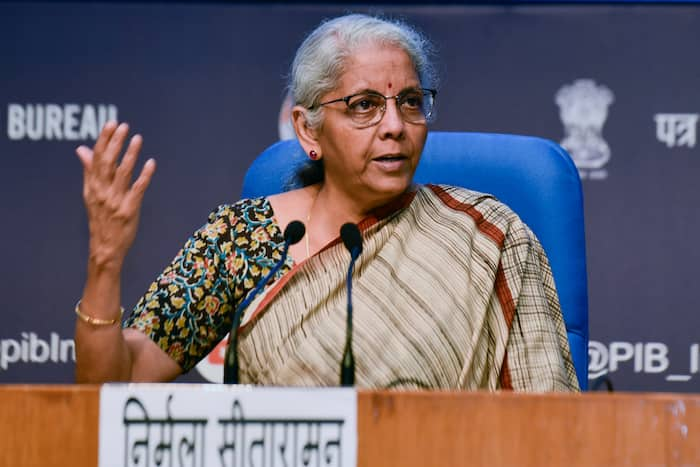“The intention of the GST was to have petrol and diesel in GST,” Sitharaman said.

New Delhi: “The intention of the central government has always been to bring petrol and diesel under GST and it is now up to the states to come together and decide on the rate,” said Finance Minister Nirmala Sitharaman on Saturday as she added that a provision has already been made by former Finance Minister Arun Jaitley by including petrol and diesel into GST law. What is remaining is for the states to come together to discuss and decide on the rate of the levy.
Also Read- India’s Forex Reserves Fall $2.92 Billion to $652.9 Billion, Gold Holding Falls $1 Billion
“The intention of the GST, as was brought in by former Finance Minister Arun Jaitley, was to have petrol and diesel in GST. It is up to the states now to decide on the rate. The intent of my predecessor was very clear, we want petrol and diesel to come into GST,” Sitharaman said.
When GST was introduced on July 1, 2017, amalgamating over a dozen central and state levies, five commodities, crude oil, natural gas, petrol, diesel, and aviation turbine fuel (ATF), were included in GST law but it was decided that it would be taxed under GST at a later date.
This meant that the central government continued to levy excise duty on them, while state governments charged VAT. These taxes, with excise duty, in particular, have been raised periodically.
Sitharaman said the intent of the Central Government when GST was implemented was that eventually sometime (later) petrol and diesel can be brought into GST.
“Provision has already been made that it can be brought into GST. One and only decision which is expected is for the states to agree and come to the GST Council and then decide what rate they will agree on.
“Once the states agree in the council, they will have to decide what will be the rate of taxation. Once that decision is taken it will be put in the Act,” Sitharaman told reporters after the 53rd GST Council meeting.
Including oil products in GST will not just help companies set off tax that they paid on input but will also bring about uniformity in taxation on fuels in the country.





































